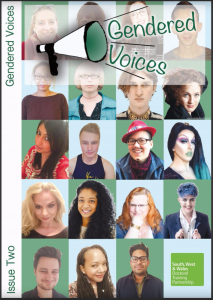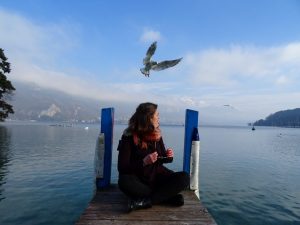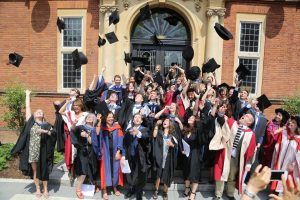 When I graduated from the University of Reading in 2012, I wasn’t sure where I wanted my degree in French and Italian to take me. I was passionate about languages, and my confidence in both languages was at its highest. I knew I wanted to use them in whatever career I would enter into. It was the desire to use my languages that spurred me on to accept a place on a Master’s degree in Technical and Specialised Translation at the University of Westminster.
When I graduated from the University of Reading in 2012, I wasn’t sure where I wanted my degree in French and Italian to take me. I was passionate about languages, and my confidence in both languages was at its highest. I knew I wanted to use them in whatever career I would enter into. It was the desire to use my languages that spurred me on to accept a place on a Master’s degree in Technical and Specialised Translation at the University of Westminster.
After graduating from my MA, I gained my first full-time job in a large translation company, TransPerfect, based in London. From here, I built on my knowledge of the translation industry and after one year I gained the confidence to go freelance, setting up my own translation business. I loved being in charge of my workload and building up a steady network of clients, both privately and through agencies. After two years of working from home as a translator, however, one of my other passions was niggling at me, and I realised that there was perhaps another career route for me where I could combine my love of languages with my passion for the arts.
I had studied a few history of art modules during my time at Reading and during my year abroad in Padua, and in particular I had enjoyed learning about the art of the Italian Renaissance. I wanted to build on this knowledge and learn more about the field of art curation in a contemporary setting. What better way to do this than by enrolling on a course in Curatorial Practice and Contemporary Art in the Italian heart of contemporary art: Venice.
I hadn’t realised what I had let myself in for when I landed in Venice last October and made my way to my rented apartment, just outside of Venice in a town called Malcontenta. I was hopeful that the name of the town wasn’t an omen of how the year to come would pan out! Taught completely in Italian, in a class of 20 Italian students, I was truly immersed from the word go, and was suddenly grateful for all the intensive language skills classes Enza had put us through in fourth year! I particularly loved the location of my school in Campo Santo Stefano, near to the Accademia bridge. I would take my morning “caffè ginseng” in the campo before attending lectures on curatorial practice, art project management, fundraising, graphic design, press relations and conservation in the crumbling Conservatorio di musica Benedetto Marcello. The course worked towards the creation and realisation of an art exhibition, which we designed and managed as a group. The best part of this process for me was working with internationally renowned contemporary artists, getting to discuss with them their artworks, and helping them throughout the exhibition process, from choosing the artworks to their arrival in Venice and installation. It was an exhausting but incredible experience, and to top it off we got to attend the openings of several exhibitions as part of the Venice International Art Biennale, meeting artists and networking.
 During my time in Venice, I also managed to fit in a one-month internship at the amazing Peggy Guggenheim Collection. I loved being surrounded by the incredible artworks in the collection, from Picasso’s, Dali’s, Matisse’s, Miro’s, Giacometti’s and Brancusi’s, to Pollock’s, Still’s, Bacon’s, Warhol’s and Fontana’s. The art collection of the PGC is out of this world, and I absolutely loved guarding the galleries, selling tickets and preparing talks for the public on the life of Peggy Guggenheim. My favourite part however was putting the artworks to bed every evening, by placing their “pyjamas” over them and being the last ones left in the museum after the crowds had left. What a dream! This experience also enabled me to learn more about the running of a small art museum, and a particular highlight for me was having a private guided tour of the collection by the Director, Dr Philip Rylands.
During my time in Venice, I also managed to fit in a one-month internship at the amazing Peggy Guggenheim Collection. I loved being surrounded by the incredible artworks in the collection, from Picasso’s, Dali’s, Matisse’s, Miro’s, Giacometti’s and Brancusi’s, to Pollock’s, Still’s, Bacon’s, Warhol’s and Fontana’s. The art collection of the PGC is out of this world, and I absolutely loved guarding the galleries, selling tickets and preparing talks for the public on the life of Peggy Guggenheim. My favourite part however was putting the artworks to bed every evening, by placing their “pyjamas” over them and being the last ones left in the museum after the crowds had left. What a dream! This experience also enabled me to learn more about the running of a small art museum, and a particular highlight for me was having a private guided tour of the collection by the Director, Dr Philip Rylands.
Having returned to the UK in May, I am now working at Royal Museums Greenwich as a Bookings and Customer Service Coordinator, having started in the museum as a Visitor Assistant. I love my job and couldn’t ask for a better place to have my office – a Unesco World Heritage site surrounded by wonderful artworks and historical artefacts. My team are from all over the world, and I use my languages on a daily basis both with my colleagues and our visitors, and I’m hoping to develop within the museum, and perhaps one day move into the curatorial department, if the opportunity arises. Amongst all the craziness of my time in Venice, I also got engaged there at the start of my course. A perfect place to be proposed to, being the lady of Venice! My fiance, a fellow Reading Modern Languages graduate, and I are now busy planning our wedding and looking forward to building our future together.
Venetia Baker
 I am delighted to announce the recent publication of the second issue of Gendered Voices magazine: “Beyond the Binary”. The magazine is published by the Gender and Sexuality Research Cluster of the AHRC SWWDTP and features work by postgraduate students, academics, and a guest article from the charity sector. This interdisciplinary magazine celebrates diversity and intersectionality. It includes topics such as drag culture, non-binary identity, transgender experience, lgbtq issues, gender fluidity in 19th century France, The Inca Empire, pirates, and much more!
I am delighted to announce the recent publication of the second issue of Gendered Voices magazine: “Beyond the Binary”. The magazine is published by the Gender and Sexuality Research Cluster of the AHRC SWWDTP and features work by postgraduate students, academics, and a guest article from the charity sector. This interdisciplinary magazine celebrates diversity and intersectionality. It includes topics such as drag culture, non-binary identity, transgender experience, lgbtq issues, gender fluidity in 19th century France, The Inca Empire, pirates, and much more!






















